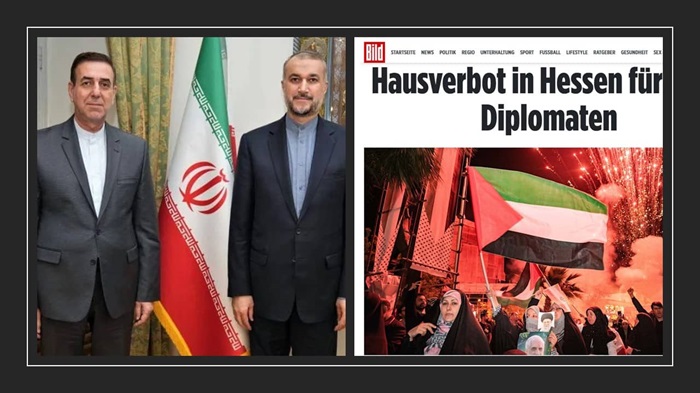

The decision marks a significant step in the state’s foreign policy, reflecting growing concerns over Iran’s role in regional instability.
In a striking response, Hessen’s State Minister Manfred Pentz, representing the Christian Democratic Union (CDU), declared the Iranian regime’s Consul, Mansour Airom, persona non grata at the State Chancellery. Airom has been explicitly banned from attending a reception for Hessen’s new government, which was expected to host delegates from 97 consular offices. Pentz’s directive was clear and firm: “Stay away.”
The exclusion of the Iranian Consul extends beyond a single event. Airom is barred from entering the Hessian State Chancellery and participating in any future state functions. This decision underscores the severity of the state’s stance against Iran, equating its actions with those of other recognized rogue states. Pentz emphasized Iran’s support for terrorism and its ongoing nuclear weapons program as primary concerns. He noted that the recent attacks on Israel serve as a “stark reminder” of the threats posed by Iran to regional peace.

This move came shortly after a letter was sent to the Iranian Consulate in Frankfurt, which reinforced the state’s disapproval of Iran’s actions and its unwillingness to engage diplomatically with its representatives. The letter, sent via email and post, reiterated that the Iranian diplomat is no longer welcome to appear before the state government.
The reaction within Hessen is particularly poignant given its sizable Iranian community, comprising about 16,000 residents, many of whom have fled Iran seeking safety and peace in Germany. This decision not only affects diplomatic relations but also resonates deeply with the local Iranian diaspora, who are often caught between their new lives in Germany and the turbulent politics of their home country.
On the broader international stage, German Foreign Minister Annalena Baerbock echoed Hessen’s sentiments during the G7 foreign ministers meeting in Italy. Baerbock called for a more isolated Iran, urging global leaders to take a firmer stance against the Islamic Republic in light of its aggressive actions.
#Iran News in Brief
According to a German newspaper, the CDU/CSU parliamentary factions have submitted a plan to the #German parliament to support #IranProtests, demanding the closure of the Hamburg Islamic Center as an “arm of the Iranian regime”.https://t.co/vfrS3zXJ7i pic.twitter.com/X4tb1fjGMy— NCRI-FAC (@iran_policy) October 22, 2022
She highlighted the importance of not escalating tensions further yet underscored the necessity of a strong and unified response to Iran’s provocations. As Hessen takes a stand, the international community watches closely, balancing the need for security and stability in the Middle East with the complexities of diplomatic isolation and regional politics. The situation remains fluid, with potential ramifications for both regional and global diplomacy.

MEK Iran (follow us on Twitter and Facebook), Maryam Rajavi’s on her site, Twitter & Facebook, NCRI (Twitter & Facebook), and People’s Mojahedin Organization of Iran – MEK IRAN – YouTu







